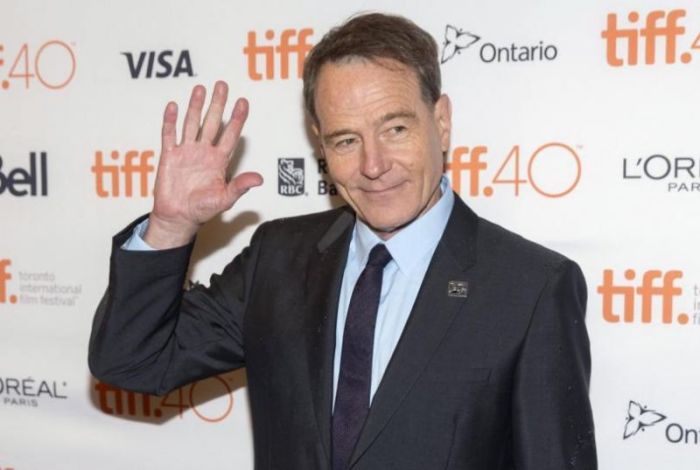Bryan Cranston condemns ‘cancel culture,’ calls for more forgiveness

Actor Bryan Cranston condemned the “cancel culture” phenomenon and urged Americans to embrace forgiveness in the new year.
Cranston, well-known for starring in the TV shows “Malcolm in the Middle” and “Breaking Bad,” made the comments during a video interview with The Associated Press Tuesday. “We live in this cancel culture of people erring and doing wrong, either on purpose or by accident,” he said.
Bryan Cranston hopes the new year brings changes to "cancel culture." pic.twitter.com/CBtYHlSmec
— AP Entertainment (@APEntertainment) January 5, 2021
According to Cranston, the push to ostracize people who have made mistakes in the past or expressed unfashionable views results from “less forgiveness in our world.”
“I think we’re, unfortunately, in a coarser environment. I think our societies have become harder and less understanding, less tolerant, less forgiving.”
“My question today was where does forgiveness live in our society? Where can we accept someone’s behavior if they are contrite, if they are apologetic and take responsibility? Isn’t it … possible that forgiveness plays a part in that and they are welcomed back in as opposed to creating more fences, creating more ‘you’re out, you’re in, that’s it … you make … one mistake, gone?’”
Cranston concluded his remarks by asserting that “we need to take a second look” at the ostracization that accompanies cancel culture, “exhale and realize that … asking forgiveness and getting, receiving forgiveness are not weaknesses but are human strengths.”
Pastor Michael Todd of Tulsa, Oklahoma’s Transformation Church made similar comments about cancel culture during an appearance on the morning radio show “The Breakfast Club” in September. When asked to address cancel culture, Todd suggested that the declining role of religious faith in American life explains why people are reluctant to forgive those who make mistakes.
“You can never give grace that you haven’t experienced,” Todd told “The Breakfast Club” host Charlamagne tha God. “And that’s why I really go back to my faith. In this moment right here, it’s because I’ve experienced the grace of God over my life.”
“A lot of people have not received grace and it’s not something you have to earn, and that’s the thing that I need everybody to understand,” he maintained. “Religion tells you that you need to earn something. God is trying to get you to receive something.”
Todd’s appearance on “The Breakfast Club” came just a month after singer Kelly Rowland condemned cancel culture in an Instagram post: “In this ‘cancel culture’ we live in, I am SO grateful God NEVER canceled me. And I’m sure he could’ve many-a-times! Let us always TRY to remember NOT to judge others. We HONESTLY don’t have the space nor authority too!”
“Let us remember to lead With love & kindness, the world has enough negativity, for you to pour more into it!” Rowland concluded her Instagram post with the hashtag “#StopTryinToBeGod.”
It’s not just celebrities that are speaking out against cancel culture. Nearly 18,000 Americans have signed the Philadelphia Statement, which calls for the restoration of “truly open discourse” and slams the “ideological blacklisting” and “censorship” of unpopular views that has become increasingly commonplace in American society.
For example, Target pulled a book called Irreversible Damage: The Transgender Craze Seducing Our Daughters by Abigail Shrier. Target’s decision to sell the book, which highlights the long-term consequences of allowing girls to be prescribed irreversible cross-sex hormones and undergo double mastectomies, was met with backlash from LGBT activists who slammed the retailer on Twitter.
In response to this criticism, Target removed the book from circulation but later added it back after facing allegations of censorship. Previously, Amazon had banned ads for the book.
Similarly, the effort to pay for billboards criticizing the increasing frequency of medicalized gender transitions among teenage girls has fallen victim to cancel culture, as GoFundMe shut down a fundraising page designed to raise money for such billboard ads. A billboard ad warning against experimental transgender medical practices in Los Angeles, California, which featured a picture of Shrier’s book, was taken down following complaints.




























